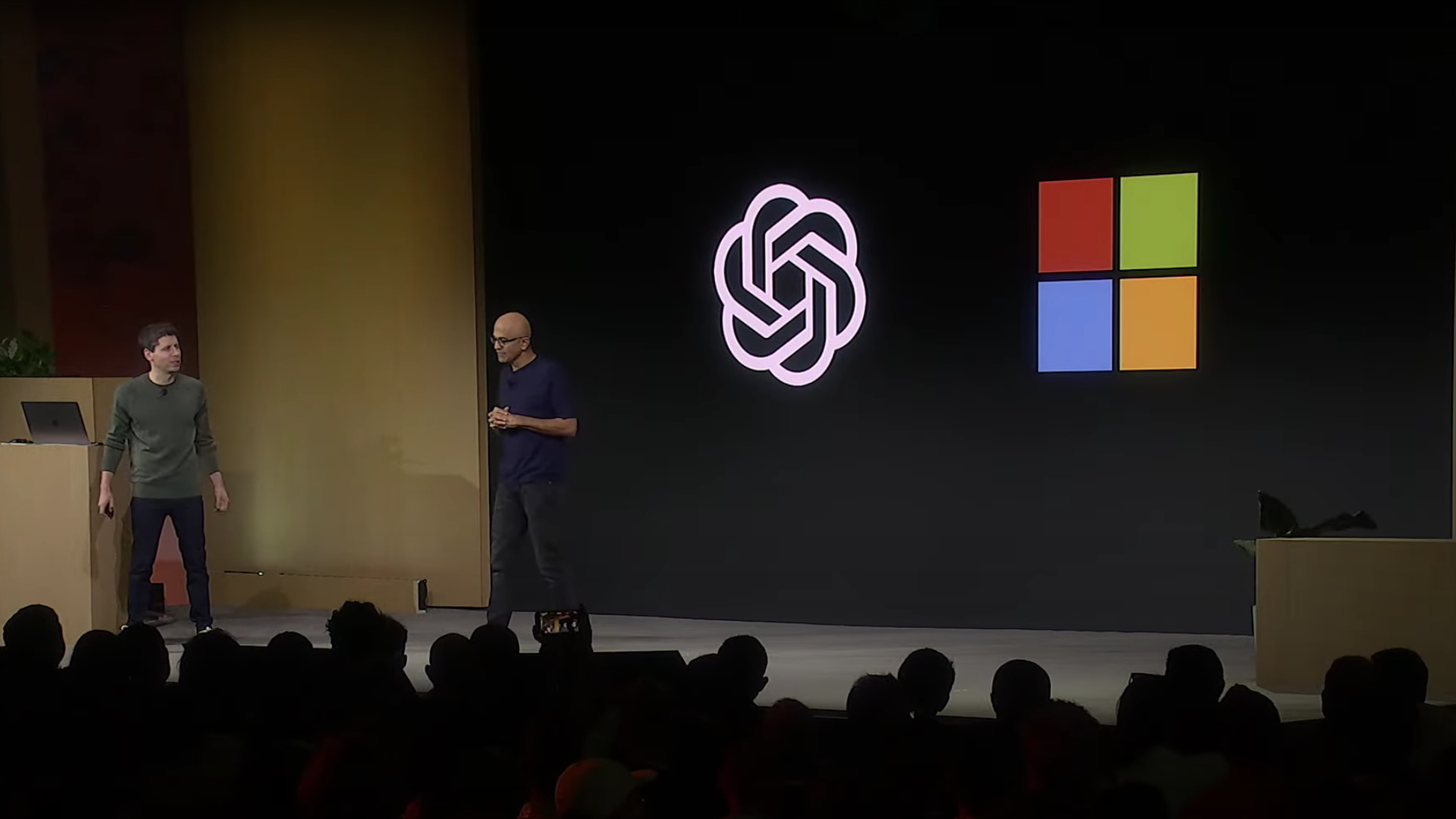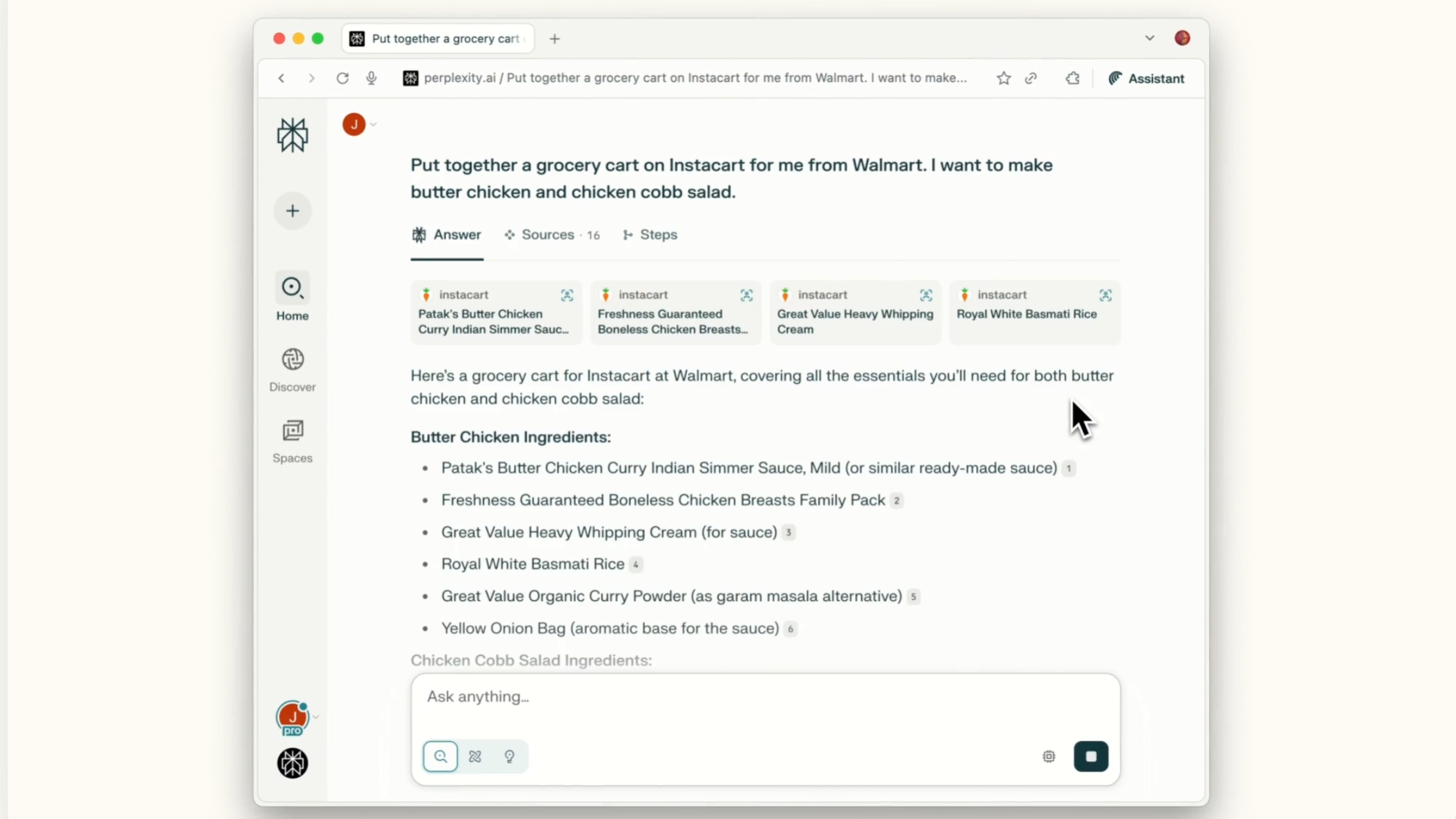Investors claim OpenAI is 'uniquely' positioned to become the world's dominant AI company worth trillions of dollars ahead of Microsoft and Apple: "There has never been a company that has both a dominant enterprise and consumer position early on"
A-list Investors are betting on OpenAI to become the world's dominant AI company worth trillions of dollars ahead of Microsoft, Apple, and NVIDIA.

What you need to know
- Despite recent bankruptcy claims, investors are betting on OpenAI to become the world's most valuable company worth trillions of dollars ahead of Microsoft, NVIDIA, and Apple.
- Investors say the ChatGPT maker is in a unique position because of its unusual scale and structure and could scale greater heights because of its dominant enterprise and consumer position.
- OpenAI's latest round of funding from investors could propel its market cap well beyond $150 billion to facilitate its sophisticated AI advances.
In July, a new report revealed that OpenAI was potentially on the brink of bankruptcy within a year. Projections further detailed that the ChatGPT maker would incur losses of $5 billion. This could be attributed to the firm's exaggerated spending on its AI efforts, including spending a whopping $7 billion on training its AI models and an additional $1.5 billion on staffing, despite getting discounted access to Microsoft's Azure services.
The startup generates up to $2 billion in revenue from ChatGPT annually and $1 billion from LLM access fees, barely meeting its estimated operational costs of $3.5-$4.5 billion. For context, OpenAI has already been through seven rounds of funding, pushing its market cap to over $80 billion. And as it now seems, the ChatGPT maker might need another round of funding to keep its business afloat.
Microsoft, NVIDIA, and Apple are reportedly among the investors expected to participate in OpenAI's latest round of funding, potentially extending its lifeline and pushing its market cap well beyond $150 billion. And as it now seems, more investors are joining the fray and placing their bets on OpenAI to become the world's dominant AI company worth trillions of dollars, potentially ahead of Microsoft, NVIDIA, and Apple (via Financial Times).
According to people knowledgeable about OpenAI's latest round of funding, Thrive Capital has reportedly already raised $1 billion towards the cause. OpenAI wants to raise $6.5 billion through another round of funding from its investors, including Microsoft, Apple, NVIDIA, and Thrive Capital, and an additional $5 billion in debt from a few banks.

Microsoft, NVIDIA, and Apple aren't the only tech companies looking to invest in OpenAI for the long term. New York-based Tiger Global and United Arab Emirates-backed fund MGX are also in deliberations to join the fray, with the deal expected to pull through soon. According to sources familiar with the deal, investors are lining up to participate in OpenAI's round of funding because of its "unusual scale and structure."
For context, investors participating in a round of funding like Thrive Capital will conventionally invest less capital in companies on the verge of bankruptcy to mitigate risks. However, there's seemingly something unique about OpenAI. According to a partner at an investment firm that backs OpenAI:
“We’re talking about the path to building a trillion-dollar company. I don’t think this is unreasonable. The advent of generative AI represented the biggest platform prize since cloud or the internet.”
All the latest news, reviews, and guides for Windows and Xbox diehards.
OpenAI needs a huge capital injection to scale greater heights on its advances amid power concerns and the potential threat of 30% of AI projects being abandoned by 2025 after proof of concept.
Other investors are keeping OpenAI at a ten-foot pole distance, choosing to invest in rival firms, including Elon Musk's xAI, which boasted that it will have the most powerful AI by every metric by the end of 2024. They shared their concerns about the ChatGPT maker's potential to handle the rapid growth of business amid tussles with top management that contributed to Sam Altman's abrupt ousting from the firm as CEO.
Investors believe OpenAI will weather the storm

Following the OpenAI fiasco, multiple executives have left the firm, citing safety concerns and alluding to a prioritization of shiny products over safety processes. Some have even departed from the firm to start their ventures focused on the development of safe AI and even got investors to raise $1 billion to support their efforts.
As OpenAI seeks another round of funding to keep its business running, Elon Musk, who is also a former co-founder of the firm, filed a lawsuit against the ChatGPT maker and Sam Altman over a stark betrayal of its founding mission and cited racketeering activities.
OpenAI's partnership with Microsoft continues to become complicated by the day, with Microsoft insiders claiming the tech giant has seemingly become an overnight glorified IT department for the hot startup. However, Microsoft CEO Satya Nadella says:
"We were very confident in our own ability. We have all the IP rights and all the capability. I mean, look, if tomorrow OpenAI disappeared, I don’t want any customer of ours to be worried about it, quite honestly, because we have all of the rights to continue the innovation, not just to serve the products. But we can go and just do what we were doing in partnership, ourselves, and so we have the people, we have the compute, we have the data, we have everything."
Microsoft recently listed OpenAI as a competitor in AI and search. Still, OpenAI's many challenges don't deter investors from looking at the bigger picture. According to one of OpenAI's investors:
“The stakes are high. But there has never been a company that has both a dominant enterprise position and a dominant consumer position early on . . . this type of business tends to be ‘winner takes most’: you’re not going to have two ChatGPTs on your phone.”
They view the challenges as a phase every startup goes through before gaining stability. Do you think OpenAI could become the world's most profitable company ahead of Microsoft, NVIDIA, and Apple?
🎃The best early Black Friday deals🦃
- 🕹️Xbox Game Pass Ultimate (3-months) | $31.59 at CDKeys (Save $17!)
- 💻Samsung Galaxy Book4 Edge (X Elite) | $899.99 at Best Buy (Save $450!)
- 🎮Razer Wolverine V2 Chroma (Xbox & PC) | $99.99 at Amazon (Save $50!)
- 🕹️Starfield Premium Upgrade (Xbox & PC) | $27.79 at CDKeys (Save $7!)
- 💻ASUS Vivobook S 15 (X Elite) | $899 at Amazon (Save $400!)
- 🕹️Final Fantasy XVI (PC, Steam) | $43.89 at CDKeys (Save $6!)
- 💻Lenovo ThinkPad X1 Carbon | $1,481.48 at Lenovo (Save $1,368!)
- 🎮 Seagate Xbox Series X|S Card (2TB) | $249.99 at Best Buy (Save $110!)
- 🕹️Hi-Fi RUSH (PC, Steam) | $8.49 at CDKeys (Save $22!)
- 💻HP Victus 15.6 (RTX 4050) | $599 at Walmart (Save $380!)
- 🫙Seagate HDD Starfield Edition (2TB) | $79.99 at Best Buy (Save $30!)
- 🖱️Razer Basilisk V3 Wired Mouse | $44.99 at Best Buy (Save $25!)
- 🕹️Days Gone (PC, Steam) | $10.29 at CDKeys (Save $39!)
- 🖥️Lenovo ThinkStation P3 (Core i5 vPro) | $879.00 at Lenovo (Save $880!)

Kevin Okemwa is a seasoned tech journalist based in Nairobi, Kenya with lots of experience covering the latest trends and developments in the industry at Windows Central. With a passion for innovation and a keen eye for detail, he has written for leading publications such as OnMSFT, MakeUseOf, and Windows Report, providing insightful analysis and breaking news on everything revolving around the Microsoft ecosystem. While AFK and not busy following the ever-emerging trends in tech, you can find him exploring the world or listening to music.
-
fjtorres5591 Short memories.Reply
So was Netscape before they got standards religion.
A better example of what lies ahead is Spyglass Mosaic.
Those that ignore the past... Yadda yadda -
FraJa Netscape disappeared by itself, it was originally a paid product, then free, without income...Reply
Lots of people had Netscape even with IE installed... and once again Windows isn't an apple product.
You were free to install whatever browser you wanted... because, yes, there were others... the "Browser War" I was there to live it, wasn't a war at all...
It was the early days of the web... not the almost mainstream technology that it was 10 years later.
When Chrome spread like an adware (the toolbar was already the same) bundled with anything, but especially Flash or Acrobat... This is where memory is really short, and about the past, people should really take a look at the actual events of the past... The 90s! the sources are everywhere, no need to hire archeologists... You will see the factual history and the tale that is commonly remembered as the history today, is already a remastered version of the rewritten history. And not written by the winners... (like the saying says). -
fjtorres5591 NETSCAPE dominated the first generation by staying ahead of the wannabe competitors by defining useful tags and getting web site developers to support them. This forced competitors to spend their time trying to duplicate the NETSCAPE flavor of HTML.Reply
But when HTML 4.2 came out, Netscape stopped innovating and surrendered control of HTML to the standards body. And they compounded this mistake by waiting for the next standard to be finalized before starting to implement it. Microsoft didn't, they coded to the preliminary spec and thus when it was finalized they had a working product on day one.
Once Netscape lost control over the web site developers they were on the way out.
Embrace, extend, extinguish. It can be repeated. And if OpenAI isn't careful, it will be.
Contrast that with WABI, when SUN and companies tried to use standards bodies to hijack control of Windows16 API set. MS kept on evolving the Windows API set into Win32, Win64, etc unto this day. They stayed ahead of the slow moving standards committees and retained control.
The story is repeated over and over; TCP/IP vs GOSIP, WinNT vs UNIX, LINUX vs UNIX, TRUE TYPE vs TYPE1, KINDLE vs ePUB...
Tech moves fast and any player that doesn't move equally fast ends up roadkill.
Few first generation players last to the second, much less third evolution of the sector. And the lucky ones end up as niche players.
In all cases, the smart money bets on the field, not the pioneer.
And in AI, the one player cruising for a bruising is NVIDIA, for their pricing practices. They are not well-loved, even by those dependent on their wares. They need to stay far ahead of competitors because the moment somebody gets even close in raw performance they'll go the way of Type1. (A story all unto itself.)
